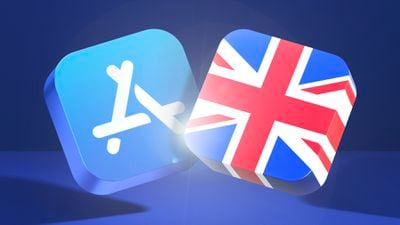The UK is set to abandon plans to heavily regulate Apple and other big tech companies using a new competition authority, the Financial Times reports.

In a paywalled report, the Financial Times claims that the British government's new legislative agenda, due to be set out in the Queen's Speech next week, will not include a bill to empower the Digital Markets Unit (DMU). The government announced plans to set up the DMU in 2020, stating that it would grant powers to the body to create a code of conduct that big tech companies have to abide by in the UK or face fines of up to 10 percent of annual turnover. An interim report published by the Competition and Markets Authority (CMA) earlier this year was intended to focus the DMU's attention, and it was met with an aggressive response from Apple.
While the DMU currently exists with around 60 members of staff, it has no powers beyond the CMA's existing capabilities. The DMU is currently working on a number of investigations, including into the terms of Apple's App Store and Apple and Google's "duopoly" over mobile ecosystems.
Julian Knight, Conservative chair of the House of Commons' Digital, Culture, Media and Sport Select Committee, said if legislation to empower the tech regulator was not included in the Queen's Speech, it would "damage the credibility of the whole enterprise... It would be a hammer blow to the capability of the UK to regulate these sectors."
The government's decision to step back from further regulating big tech is reportedly due to the decision to drop corporate reforms and Prime Minister Boris Johnson's desire to step away from state intervention in the economy.
A statement from the Department for Digital, Culture, Media and Sport to the Financial Times suggested that powers to "change the conduct of the most powerful tech firms and protect businesses and consumers" are still on the way, but it "could not comment on timelines for potential future legislation."
Apple's ecosystem is increasingly coming under intense scrutiny by governments around the world, including in the United States, Japan, South Korea, the European Union, and more, with a clear appetite from global regulators to explore requirements around app store policies, app sideloading, and interoperability.
Note: Due to the political or social nature of the discussion regarding this topic, the discussion thread is located in our Political News forum. All forum members and site visitors are welcome to read and follow the thread, but posting is limited to forum members with at least 100 posts.


















